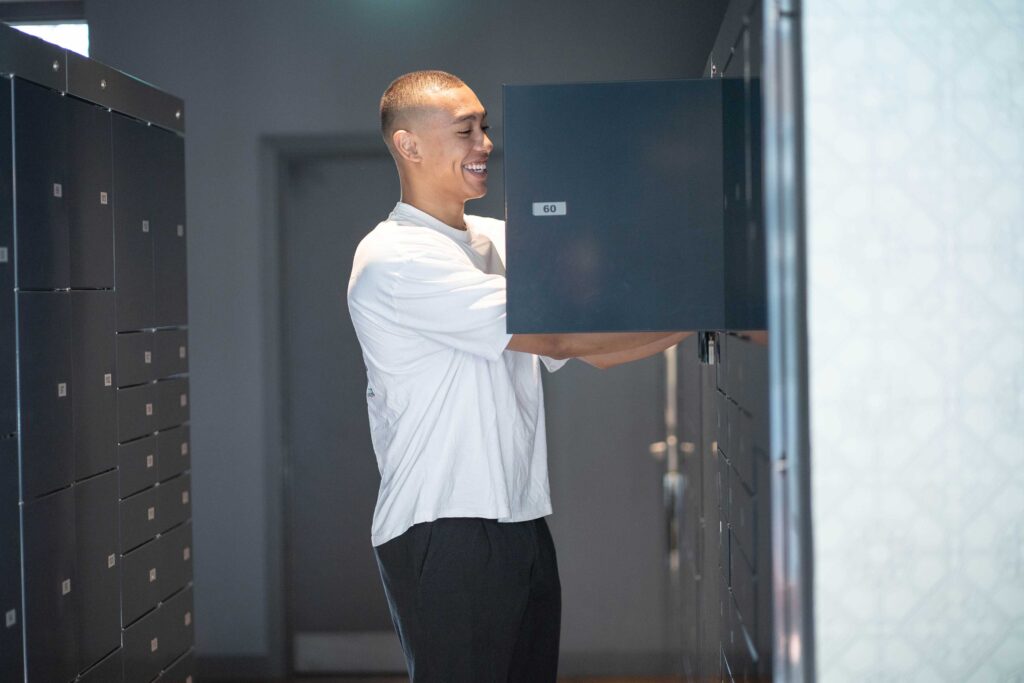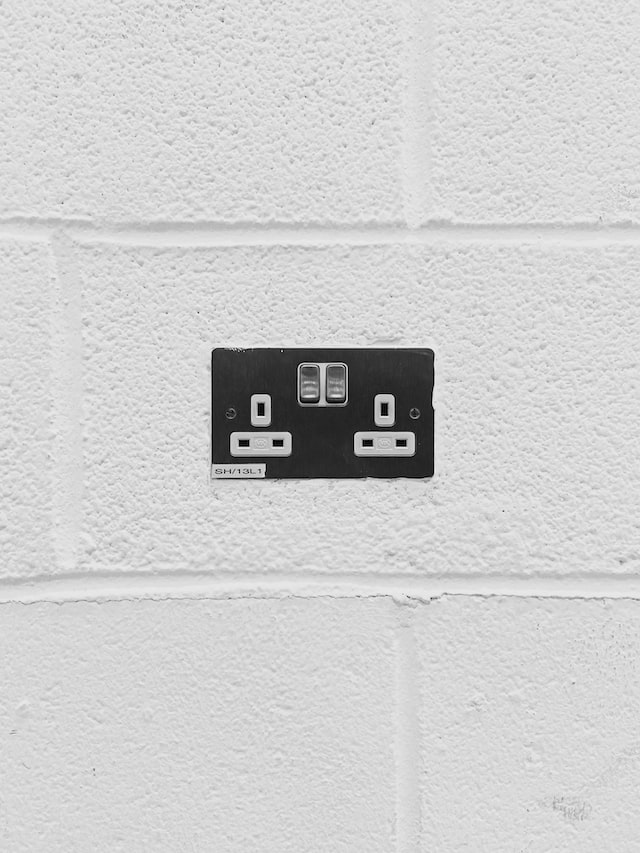Revealed: The Biggest Student Housing Problems in the North
Back
House-share hunting is full of challenges for students in every year of their studies – from finding the perfect group of mates to move in with to fitting viewings in around your studies. Problems that might occur after your move-in date are often at the bottom of the priority list when searching for the perfect pad, but preparation is key if you want to find student housing harmony.
We believe students in every UK city should be able to access the best quality housing with ease, but our recent national survey revealed there are many barriers to making this a reality. 98% of students in the North East, North West, Yorkshire and the Humber claim they have experienced at least one major mishap while living in an HMO shared house.
But don’t worry our Fighting For a Fair Deal For Students campaign is just our latest effort to help students access fuss-free, high-quality housing. See our full collection of research and resources and learn how to rent with confidence.
Read on to discover the biggest student housing problems in the North:

Damp and mould
Damp and mould are unfortunately common in older homes. Student properties are no exception. Our survey discovered that half of the North’s students suffer from damp and mould in their HMO shared house.
Hull is the Northern capital of mouldy student housing, according to the 67% of students who suffered from it. This high number also makes it the top city in the UK for HMO mould.
Without vigilant repairs and maintenance, any property can suffer leaks, rising or intrusive damp due to the UK’s mild, wet climate – but it’s not okay to ignore the issue.
Living with mould can cause allergic reactions, recurring respiratory illnesses, and asthma attacks. As well as damaging your health, mould can ruin your belongings. Once present on clothing, furniture and soft furnishings, it is very difficult to remove.
To reduce your chances of suffering from damp in your student house:
- Open windows when showering, cooking, or running appliances like washing machines and tumble driers.
- Turn on ventilation fans to keep air circulating.
- Heat the property properly to help dispel moisture.
- Keep humidity under control by avoiding drying wet clothes inside.
If none of this helps, contact your landlord. The problem may be due to a structural issue such as poor ventilation, a lack of insulation, a burst pipe, or damage to the building’s exterior.
Avoid getting stuck in an HMO property with mould by learning to spot it before signing a contract. Our viewing checklist equips you with damp-spotting knowledge before you attend a viewing.
Did you know? It’s your landlord’s responsibility to address mould if the cause is structural, and/or if it is impacting your health. See housing charity Shelter for more advice about how to solve a mould problem in your rented house or flat.
Splitting bills
Housemate relationships are full of little moments of conflict and frustration. From doing the dishes to taking out the bins, there’s always something to squabble over.
Bills are the biggest cause of friction for Northern students. In the North East, three-quarters argue over bills, while they also prove to be an issue for 21% of students in the North East, and 40% in Yorkshire and the Humber.
While rent remains the same monthly, costs for water, electricity, and gas can vary massively month-to-month. With energy costs soaring, some HMO renters might vote to keep the heating off and pile the layers on, while their flatmates beg to blast the radiator in their room.

Since it’s impossible to pin down who’s used how much energy, the only solution is to split the cost equally, which can leave some housemates feeling out of pocket.
Avoiding surprise bills is the key to keeping your budget under control. Wave goodbye to these unexpected costs with our guide to dodging hidden housing fees.
Did you know? Variable utilities contracts aren’t your only option when moving into student housing. Some providers offer an all-inclusive rate so you can be sure your monthly costs remain constant. In the north, the Here! Student Living residency combines all your utility bills under a single convenient payment – so you can spend less time budgeting and more time loving student life.
Lack of security
The bare minimum expectation for any kind of housing is safety. University may be the first time you live away from family, which can feel scary enough without worrying about potential break-ins.
Despite this, one-third of students in the North feel their shared house lacks adequate security measures.
Regionally, half of all students surveyed in the North East reported that they didn’t feel their HMO was secure. This includes Newcastle, which is often voted as one of the best student cities in the UK.
While you may feel like you’re ready to take on the world, a perceived lack of worldly experience can make students seem an easier target for theft and burglary. ONS statistics report that people aged 16-24 years old are more likely to be burgled than those in other age groups.
While anyone can be a victim of burglary, there are a few steps you can take to defend your HMO against opportunist thieves:
- Out of sight, out of mind – House parties can be chaotic. One minute it’s just your close friends, the next your shared house is full of strangers. Try to keep the party to the kitchen or living room, rather than spilling into bedrooms where valuables are kept.
- Make security your routine – Getting into a routine of locking up all windows and doors when you enter or leave is essential. With multiple students living under one roof, people come and go at all hours of the day and night, so it’s important to stay vigilant.
- Secure your bedroom – HMOs lend themselves well to the social side of student life. However, their communal nature can also mean everyone and their friends have access to your private space. Consider keeping your valuables under lock and key with an external bedroom door lock.

We recommend investing in student contents insurance to cover high-value items like bikes and electronics. While this won’t prevent them from being stolen, it will cover the cost if the worst does happen. Read our guide and find the best contents insurance for you.
Did you know? Half of all student burglaries committed in West Yorkshire, which includes Leeds, Bradford, and Wakefield, occur through open or unlocked windows and doors.
Landlords withholding deposits
Tenancy deposits are standard practice in the private rental sector. Your deposit will likely be the value of 4-6 weeks of rent, split between you and your flatmates. This acts as a guarantee to your landlord that you will take care of the property.
27% of Northern students have issues getting their full deposit back when they move out of their HMO. Some of these claims will be legitimate compensation for damage caused by student tenants, but others may be bogus claims for unnecessary extras like professional cleaning costs.

Student HMOs rarely escape the general wear and tear of day-to-day life. But when do a few stains on the carpet or chips in the paint turn into deposit-deduction-worthy damage?
Cracks, scratches, scuffs and fading to walls, floors and soft furnishing cannot be avoided. Your landlord cannot legally take money from your deposit to cover these types of maintenance issues.
Despite this, some landlords will try. To defend yourself against this, we recommend taking detailed photos at the start and end of your tenancy to demonstrate the condition you found and left the property in. These will help you dispute any unfair claims with your tenancy deposit scheme, the third party that must hold your deposit throughout the tenancy to ensure you are treated fairly.
According to our survey, Manchester’s HMO landlords keep the tightest grip on deposits compared to other Northern cities – 42% of students said they had trouble claiming back the full amount. This was closely followed by Bradford and Liverpool, where 40% and 38% of respondents had deposit issues.
Wise up to the details of your tenancy agreement with our handy guide.
Did you know? You are not required to pay for professional cleaning services at the end of your HMO tenancy. Most contracts state that you must leave the property in a similar state of cleanliness to that you found it in. This makes it especially important to keep photographic evidence if your HMO house share is dirty on the day you move in.
Electrical faults
In our survey, 23% of Northern students reported electrical faults in their HMO house or flat. Liverpool and Hull take the top spots for electrical mishaps – 63% and 50% of students report problems.
This is particularly concerning when you consider that faulty electrics cause around 4,000 fires in UK homes each year.
The latest generation of students is tech-savvy. Most arrive at uni with a whole host of electronic devices – from laptops and tablets to game consoles and hair styling tools. While these gadgets are designed to make our lives easier, they can also add to the pressure on your shared house’s electrics.
While much of the responsibility for maintaining electrical wiring and fixing any faults lie with your landlord, there are a few things you can do to promote good electrical safety in your HMO house share:
- Don’t overload sockets or extensions leads with appliances.
- Stop using appliances that show signs of damage such as frayed wires, loose parts, or cracked plugs.
- Make sure you have a working smoke alarm and conduct tests on it regularly
- Never store anything on top of your microwave as it can cause overheating.
- Do not cook or use heat-producing appliances such as hair straighteners while under the influence of alcohol.

We highly recommend avoiding conducting electrical repairs on your own, however minor they may seem. Not only is it the landlord’s responsibility to maintain and repair all wiring, sockets, fuse boxes and switches in your HMO property – botched repairs can lead to serious injury and increase fire risk.
If you’re worried about the electrical safety of your HMO house-share property, take a look at the government’s electrical safety standards guide for tenants.
Did you know? HMO landlords are required by law to conduct tests on their rental property’s electrical safety at least every five years. Your landlord must provide the property’s latest electrical safety certificate alongside your tenancy agreement when you sign your contract.
Are house shares on their way out?
After all the issues unearthed, we weren’t surprised that 63% of student HMO renters in the North consider or have considered alternative accommodation options.
While not currently as popular, other student living options offer increased safety and security, better standards of living, and hassle-free payment options compared with HMOs. Over half of the Northern students we surveyed were considering managed student accommodation providers.
A big part of our mission is to raise the quality, safety, and living standards in student accommodation across the UK. We’re dedicated to informing students about their accommodation choices through resources which paint a full picture of the student rental market.
We’re fighting for a fair deal for students. Discover what the most common accommodation issues are, learn how to get more savvy when dealing with private landlords, and share your student rental horror stories. Find out more.

